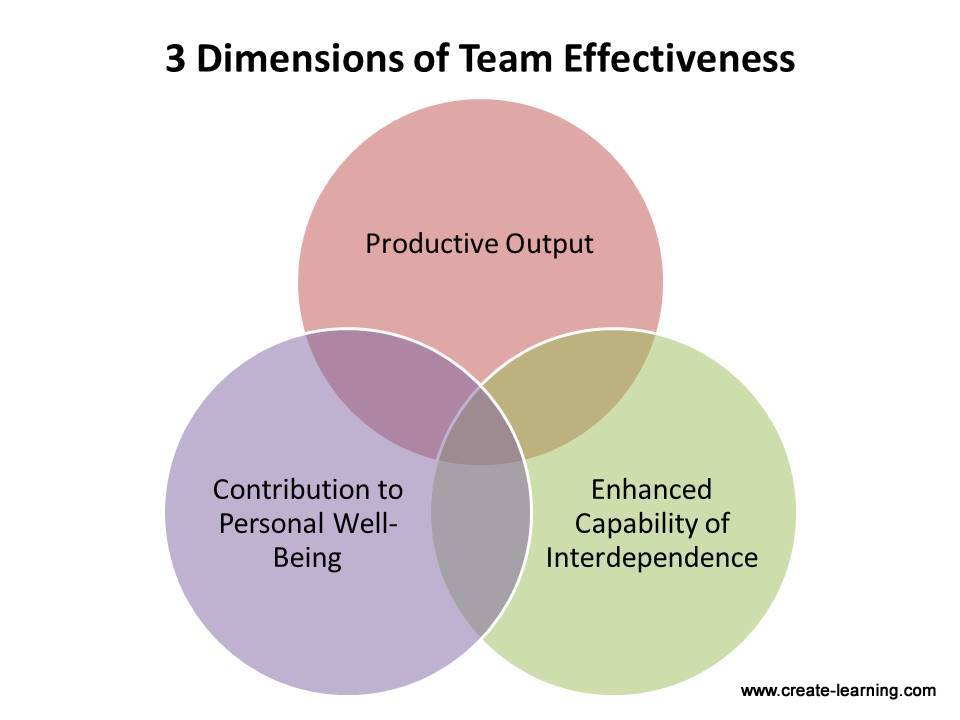
How to evaluate team performance and effectiveness?
From the time I meet with a team until we achieve or come close enough to the understood goal to stop, this is something we wonder about.
Few tasks have clear right and wrong answers even when teams have specific output, quality, and time frame measures that do not reflect effectiveness.
A team can burn out, performing a task, under-utilize, or damage cross-functional relationships to get the task complete … we can’t call that effective.
3 dimensions of team effectiveness
1. How well does the team’s output meets the quality, quantity, and time frame of the people who receive, review or use that output
When a team generates an unacceptable output to the client, that team is ineffective – no matter how hard the team tried or their product evaluation.
How teams are viewed as effective is often based upon someone outside the team than any objective performance measure.
We must identify who the clients(s) or customer(s) are of the team to evaluate effectiveness.
2. How does the process of doing the work increase and decrease the desire of team members to work together interdependently in the future
Some teams work in a way that makes it impossible for people to work together again; for example, mutual rancor could become so high that people choose collective failure rather than sharing knowledge or resources. In other teams, people become highly skilled at working together, resulting in performance that becomes increasingly better over time.
We must examine whether capability as a team increases or decreases over time to evaluate effectiveness.
3. The amount to which the team experience contributes to the growth and personal well-being of team members
Some teams operate in ways that block the development of individual members and make people feel their personal needs are not relevant to the team’s success. Others provide team members with ample opportunities for learning and satisfaction. Even when the team’s purpose has nothing to do with personal development, the impact of team experience on the individual impacts team effectiveness.
We must observe how the team’s work creates an opportunity for growth and well-being of the individual to evaluate team effectiveness.
Determining the effectiveness of a team involves more than counting outputs. We must consider social and personal criteria, plus the complexity of task performance dependent upon the team’s customers, co-workers, and environment.

